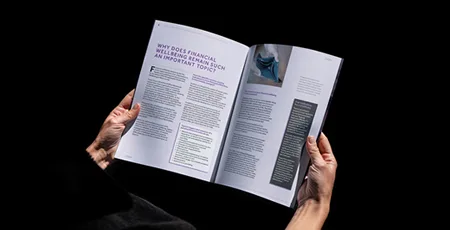Work-Net International launches at AMBS
A global network dedicated to advancing research on work and employment
Work-Net International was officially launched at AMBS with guests attending from around the world.
Held as part of the Work and Equalities Institute's Fairness at Work conference, the launch event welcomed 26 of Work-Net International's founding members to Manchester.
The event brought together scholars, policymakers, and practitioners to explore the network's potential to influence international policy and academic discourse on critical issues related to work and employment.
The network aims to connect research centres and institutes across the globe, providing a platform for collaboration and mutual support. With 31 initial members spanning North America, Europe, Africa, and Asia, the network is poised to make significant contributions to academic research and policymaking. Future plans include expanding its reach and influence to more regions.
By fostering an international and inter-disciplinary approach, Work-Net International aims to address critical challenges and opportunities in work and employment. The network envisions influencing global policy, advancing the UN's Sustainable Development Goals, and improving the quality of work life for individuals worldwide.
Pivotal role
Professor Jill Rubery, Executive Director of the Work and Equalities Institute (WEI) at AMBS, and Chair of the Work-Net International steering group, said:
"The network emphasises the pivotal role of work and employment in economic and social development, recognising that major shifts in these domains require innovative, inter-disciplinary research and solutions.
"Its activities will range from supporting early-career researchers and developing study groups to fostering international research collaborations and policy dialogues."
At the launch event, she was joined on stage for welcome speeches by Professor Duncan Ivison, President and Vice-Chancellor of The University of Manchester, and Sangheon Lee, Director of the International Labour Organisation's (ILO) Employment Department.
Said Professor Ivison: "One of the defining characteristics of great 21st century universities in the next decade will be those who can find a way to accelerate the point between discovery and impact.
"How do we unlock the work we are doing in more creative, innovative and speedier ways? There are certain urgent issues that we just have to get to grips with and global networks are going to be so important.
Sangheon Lee added: "It is extremely timely as the world of work is going through profound transformations with growing political and social uncertainty, which urgently require coordinated and informed policy actions at both national and global levels.
"This impressive global network should help the ILO advance debates and seek new policy solutions."
The world of work and employment is being transformed in so many ways, for instance whether it’s AI or because of the transition to net zero, and these are profound changes.
Panel discussions
The launch event also featured two panel discussions involving Work-Net members. The first explored the rationale for establishing Work-Net International, and the importance of interdisciplinary and comparative research in addressing the challenges and opportunities in work and employment.
The second panel examined how holistic research can inform policy debates, focusing on ways to improve the organisation of work and employment in a rapidly changing world.
Looking ahead, Professor Rubery said the network's activities would include facilitating exchange visits and collaborations, the creation of study groups to explore new challenges, and also providing specialised support for early career and doctoral researchers.;
She added: "The challenge for the next year or so is to strengthen the links between our member institutes and to help our researchers, particularly those starting out, to forge international connections and develop an international perspective on their research."
Tags:






